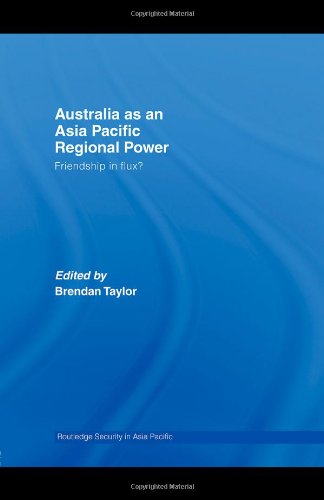

Most ebook files are in PDF format, so you can easily read them using various software such as Foxit Reader or directly on the Google Chrome browser.
Some ebook files are released by publishers in other formats such as .awz, .mobi, .epub, .fb2, etc. You may need to install specific software to read these formats on mobile/PC, such as Calibre.
Please read the tutorial at this link: https://ebookbell.com/faq
We offer FREE conversion to the popular formats you request; however, this may take some time. Therefore, right after payment, please email us, and we will try to provide the service as quickly as possible.
For some exceptional file formats or broken links (if any), please refrain from opening any disputes. Instead, email us first, and we will try to assist within a maximum of 6 hours.
EbookBell Team

4.0
56 reviewsDuring recent years, in its traditional role as an important Asia-Pacific regional power, Australia has had to cope with a rapidly changing external security environment and a series of new challenges, including a rising China, an increasingly assertive United States, and most notably the Global War against Terror.
This book considers the changing nature of Australia’s identity and role in the Asia-Pacific, and the forces behind these developments, with particular attention towards security alignments and alliance relationships. It outlines the contours of Australia’s traditional role as a key regional middle power and the patterns of its heavy reliance on security alignments and alliances. Brendan Taylor goes on to consider Australia’s relationships with other regional powers including Japan, China, Indonesia and India, uncovering the underlying purposes and expectations associated with these relationships, their evolving character – particularly in the post Cold War era – and likely future directions. He discusses the implications for the region of Australia’s new ‘Pacific doctrine’ of intervention, whether Australia’s traditional alliance preferences are compatible with the emergence of a new East Asian security mechanism, and the impact of new, transnational and non-traditional security challenges such as terrorism and failed states.